21st Century Discoveries: Utopia
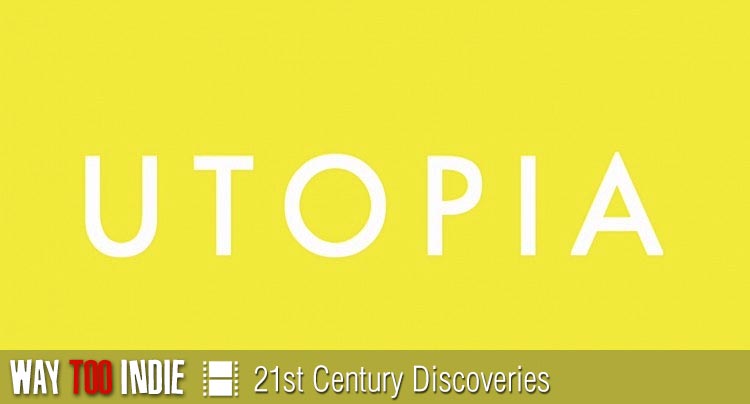
21st Century Discoveries is a feature dedicated to exploring great, underseen and/or underappreciated films released since 2000. The goal is to help readers discover new, challenging and exciting films from around the world worth seeking out.
For my second entry into this feature, I’m breaking my own rules. I’m focusing on a TV show instead of a film. But I might as well go against conventions with something so unconventional and cinematic. For those currently residing in the US, this might be the best show on TV you’ve never heard of. Read on to see why Utopia is such a fantastic series. And if you’re from the UK, or have region free capabilities, you can buy Series 1 on Blu-ray.
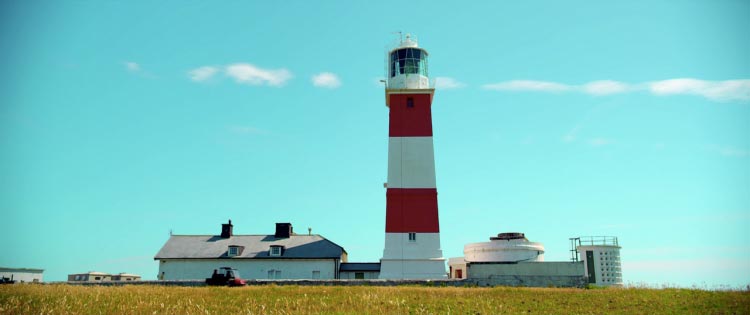
Before you begin reading, please take the time (if you can) to watch the opening scene of Utopia. Intrigued? Horrified? Read on to find out more.
Utopia‘s opening frames immediately establish it as a show unlike anything else on television. The show, created by Dennis Kelly and airing in the UK on Channel 4, shoots in 2.35:1. This isn’t the first time television played with aspect ratios beyond 16×9; comedies often experiment with changing their framing, like Chris Morris’ Jam or, more recently, Key & Peele. Sketch shows tend to get away with it because a sketch can operate as its own short film. Utopia is one of the only dramas to film entirely in Scope (exceptions: Borgen shot in 2.2:1, and House of Cards films in 2:1, a sort of happy middle ground between 16×9 and Scope).
And with the recent renaissance of television, one making people wonder how the line between film and television has all but vanished, Utopia might be the most cinematic show on television. It doesn’t boil down to just the use of a wider aspect ratio either. The set design, compositions, use of colour and sound all have a quality to them that’s so offbeat and original in its execution it feels so out of step with current TV trends. I can safely say Utopia is a TV show where, if someone played it in cinemas, I wouldn’t notice it was made for television.
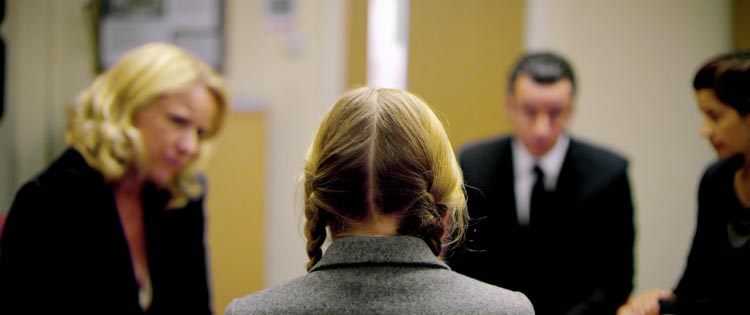
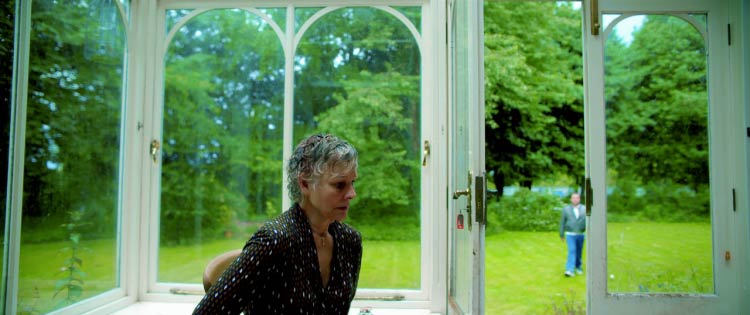
But let’s get to the meat of the show before delving further into its aesthetic pleasures. Utopia opens with two men, Arby (Neil Maskell) and Lee (Paul Ready) walking into a comic book store and murder everyone inside. They’re looking for two things: a woman named Jessica Hyde (“Where is Jessica Hyde?” became the show’s catchphrase last year), and a manuscript for the sequel to graphic novel The Utopia Experiments. In the show’s universe the comic has a cult following, with people claiming its drawings have prophecies and secrets hidden within them. The author, Philip Carvel, was a paranoid schizophrenic who wrote the book while locked up in an insane asylum. He killed himself before finishing the sequel, and now a manuscript of his second book has turned up.
That manuscript is now in the hands of four obsessive fans of The Utopia Experiments: Becky (Alexandra Roach), a medicine student suffering from a rare, degenerative disease; Ian (Nathan Stewart-Jarrett), a lowly IT consultant; Wilson (Adeel Akhtar), a paranoid conspiracy theorist; and Grant (Oliver Woollford), a young and deceptively smart pre-teen. They find out the hard way that The Utopia Experiments actually does have secrets hidden within its pages, as Arby and Lee come hunting for them. Philip Carvel was involved with a vast conspiracy called The Network before losing his mind, and the pages of his manuscript contain vital information that will help The Network pull off their massive, decades in the making project.
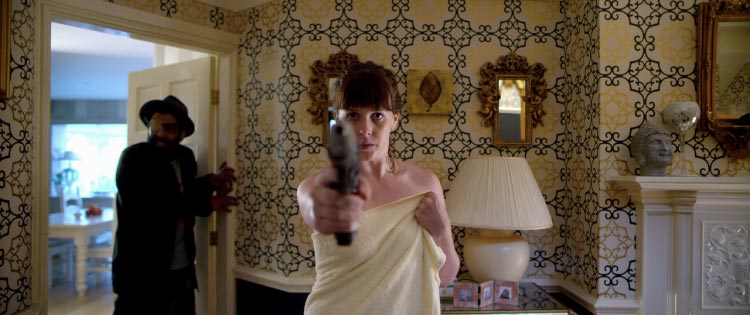

While Becky, Ian, Wilson and Grant’s run for their lives to avoid getting murdered by The Network, Utopia also focuses on an entirely different storyline. Government worker Michael Dugdale (Paul Higgins) gets sucked into the conspiracy when he`s blackmailed into complete a mission for them. Both storylines in the show end up combining to provide a complete picture of The Network and its sinister intentions. The four characters on the run provide a bottom-up view, while Dugdale offers a glimpse into the higher levels of the conspiracy.
What distinguishes Utopia from other TV shows is its tone. The world of Utopia is one of death and brutality. Early on in the series one character says “There are no sides. Just people who help you and people who don’t.” The show quickly establishes that, whether you help or not, you’re most likely going to end up killed. Think of the show’s universe as a Cormac McCarthy novel filtered through a pop art lens. For The Network, their secretive project is so vital to them they would be willing to do anything in order to ensure its success. For everyone trying to escape their clutches, the only way to ensure their own safety is to silence anyone with the ability to threaten their chances of survival. It’s the ends justifying the means taken to an extreme level, and Utopia goes out of its way to show nothing is off-limits. Spoilers: the opening to episode 3, while a great example of what the show excels at, caused controversy in the UK considering it aired just over a month after Sandy Hook.
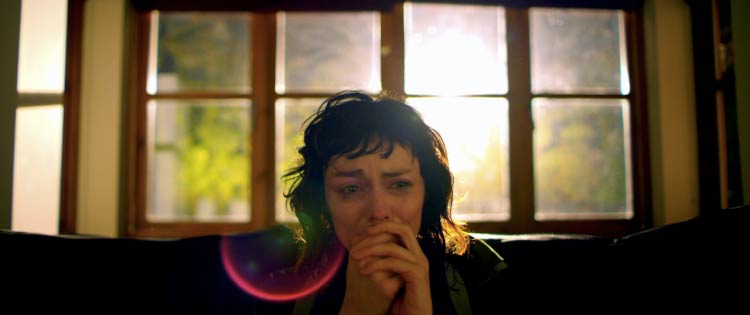
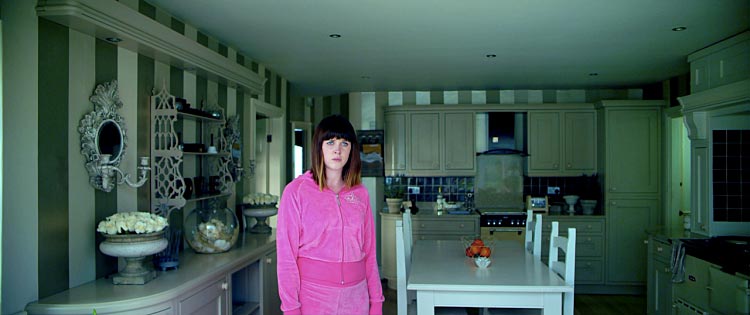
Don’t think Utopia is nothing but bleakness, though. The show juxtaposes its horrific nature with stunning visuals, employing a hyperrealistic look. Colours are oversaturated to the point where they vibrantly pop off the screen; colours and framing are deliberately made to resemble comic book panels. Cinematographer Ole Bratt Birkeland consistently provides some of the best visuals on TV right now. Director Marc Munden, handling the series’ first three episodes (Wayne Che Yip & Alex Garcia Lopez handle the other three), directs on a level that feels unprecedented compared to TV’s top prestige shows. Every shot looks coloured in by hand, and the exaggerative style offsets the dark, brutal content shown every week. The show also manages to be quite funny too. Dennis Kelly has one hell of a twisted sense of humour, and there are plenty of moments in Utopia that inspire a lot of inappropriate laughter. It all combines together to form a truly bizarre, singular viewing experience.
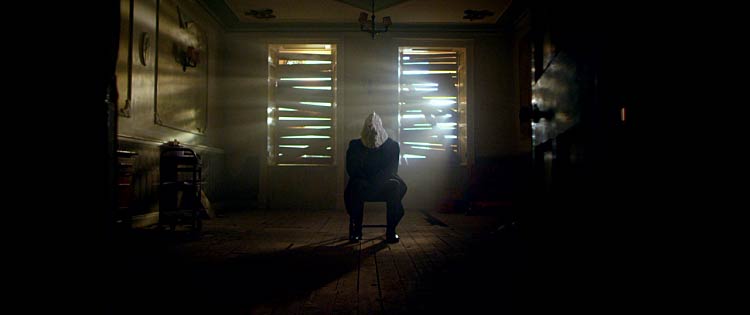
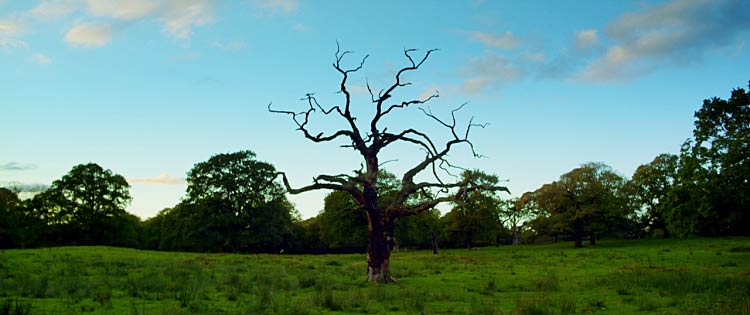
What really cements the unsettling atmosphere of the show is Cristobal Tapia de Veer’s score. The composer was given free rein to come up with a sound for the program, and his results are completely off the wall. In an interview de Veer said he used human bones as instruments during his recording sessions because of Utopia‘s level of death and violence in the story. He also used a trutrukra he played in the subway and a dried piece of rhino feces as instruments. It’s a wildly experimental score, and the usage of warped vocal samples throughout, especially the sounds of people breathing, make it the most unforgettable part of the series.
With television undergoing a sort of transitional period, Utopia feels exciting because it explores an area TV dramas haven’t really touched on yet: experimentation. The cinematic visuals and unorthodox score give off the impression of Channel 4 allowing complete creative control and commitment to the makers of Utopia. The show, whose second series is being unceremoniously dumped by Channel 4 right now, already has one major fan. David Fincher is teaming with HBO to adapt Utopia for US audiences. Hopefully Fincher will fight for the distinctive qualities of Dennis Kelly’s work, since it’d be hard to imagine Utopia having the same impact if it doesn’t shoot in Scope. One major downside of Fincher’s adaptation is that US audiences probably won’t get a chance to see one of the best shows currently on TV. It’s hard to tell what the future of television will hold, but a show like Utopia makes it feel like the future is already here.
